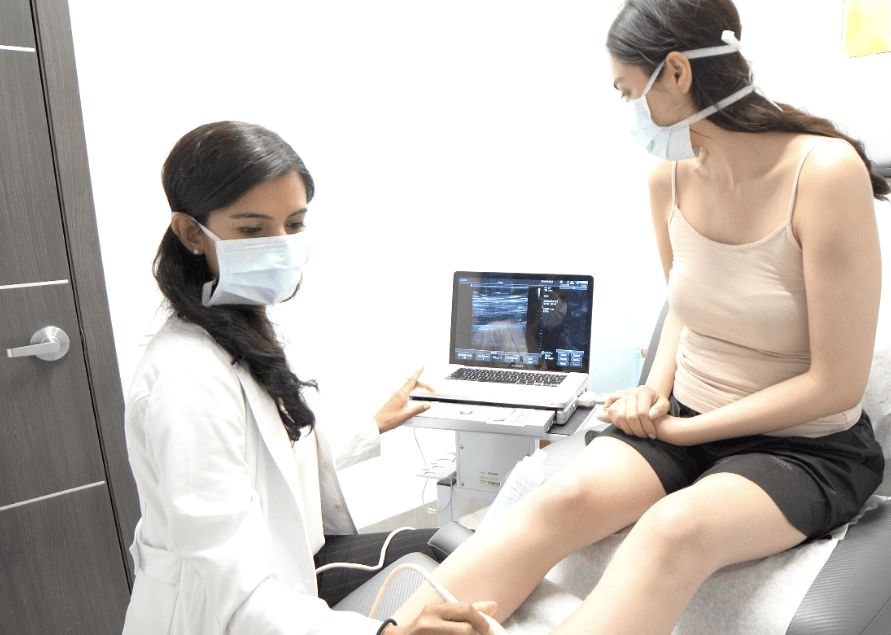What Are the Advantages of Seeing a Varicose Vein Specialist?
- Irvin Kelley
- Jan 17, 2025
- 3 min read

Varicose veins are a common condition that affects millions of people worldwide. These enlarged, twisted veins can cause discomfort, swelling, and even serious health issues if left untreated. If you’re dealing with varicose veins, you may wonder, "What doctor treats varicose veins?" The answer is a varicose vein specialist called, also known as a phlebologist or vascular surgeon. This article explores the benefits of consulting a specialist and why their expertise matters.
What Is a Varicose Vein Specialist?
A varicose vein specialist is a medical professional with advanced training in diagnosing and treating vein-related conditions. These specialists typically have expertise in vascular health and focus specifically on conditions like varicose veins, spider veins, and venous insufficiency. Unlike general practitioners, they use advanced diagnostic tools and techniques to create personalized treatment plans.
If you're unsure where to start, look for a vascular surgeon or a vein clinic in your area. These specialists are well-equipped to evaluate your condition and provide targeted solutions.
What Doctor Treats Varicose Veins and Why Choose Them?
When asking, "What doctor treats varicose veins?" it’s essential to understand the qualifications and focus areas of a vein specialist. Here’s why choosing a trained professional is important:
Customized Treatment Plans: They tailor treatment based on your specific needs, whether it’s cosmetic correction or resolving medical symptoms.
Minimally Invasive Procedures: Many vein specialists perform advanced procedures such as laser therapy, sclerotherapy, or endovenous ablation, which are less invasive and offer faster recovery.
By seeking out a varicose vein specialist, you ensure you’re in the hands of someone who understands the intricacies of vascular health.
What Are the Treatment Options for Varicose Veins?
Varicose vein specialists offer several effective treatments that address both cosmetic concerns and medical complications. Here are some of the most common procedures:
1. Sclerotherapy
Sclerotherapy involves injecting a solution directly into the affected vein, causing it to collapse and eventually fade. This treatment is highly effective for smaller varicose veins and spider veins.
2. Endovenous Laser Therapy (EVLT)
This minimally invasive procedure uses laser energy to seal off larger varicose veins. EVLT is performed under local anesthesia and requires minimal downtime.
3. Radiofrequency Ablation (RFA)
Similar to EVLT, RFA uses radiofrequency energy to heat and close off damaged veins. It’s a highly effective option for treating larger veins with minimal discomfort.
4. Ambulatory Phlebectomy
In this procedure, a specialist removes varicose veins through small incisions in the skin. It’s typically performed for veins located closer to the skin’s surface.
5. Compression Therapy
For mild cases, a specialist may recommend wearing compression stockings to improve blood flow and reduce symptoms. This conservative approach is often the first line of treatment for early-stage varicose veins.
Why Early Intervention Matters
Delaying treatment for varicose veins can lead to worsening symptoms and complications such as blood clots, skin ulcers, or chronic venous insufficiency. By consulting a varicose vein specialist early, you can prevent these issues and improve your quality of life.
What to Expect During Your Visit
When you visit a varicose vein specialist, the process begins with a comprehensive evaluation. Here’s what you can expect:
Medical History and Symptoms: The specialist will ask about your symptoms, lifestyle, and any underlying health conditions.
Physical Examination: They’ll examine your legs for visible signs of varicose veins and assess your vein health.
Ultrasound Imaging: To get a detailed view of your veins, the specialist may perform a duplex ultrasound. This test helps identify faulty valves or blockages.
Personalized Treatment Plan: Based on the findings, the doctor will recommend the most suitable treatment options.
How to Choose the Right Varicose Vein Specialist
Selecting the right doctor is crucial for successful treatment. Here are some tips to find the best specialist for your needs:
Check Qualifications: Look for a board-certified vascular surgeon or phlebologist.
Read Reviews: Patient testimonials can give you insight into the specialist’s expertise and bedside manner.
Inquire About Technology: Advanced diagnostic tools and minimally invasive techniques are hallmarks of a reputable vein clinic.
Consider Convenience: Choose a specialist with a location and schedule that works for you.
Conclusion: Take the First Step Toward Healthier Veins
If you’re struggling with varicose veins, don’t wait to seek professional help. A varicose vein specialist can diagnose the issue, provide effective treatment, and help you regain confidence and comfort. By addressing your concerns early, you can prevent complications and enjoy healthier legs.
So, when asking, "What doctor treats varicose veins?" the answer lies in consulting a skilled varicose vein specialist. Their expertise and advanced treatment options make all the difference in restoring your vascular health. Don’t hesitate—schedule a consultation today and take the first step toward relief!





Comments